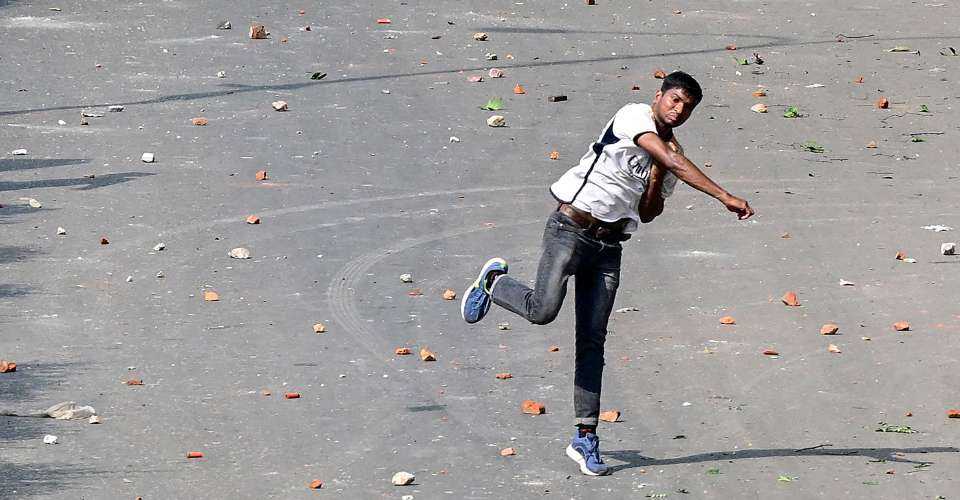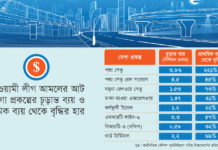
A protester pelts stones as students clash with police during the ongoing anti-quota protest in Dhaka on July 18. (Photo: AFP)
Western nations have advised their citizens not to travel to Bangladesh where deadly student protests have closed down the country amid curfews on communications and internet connections cut off from the outside world.
Early on July 22, soldiers were patrolling cities across the Muslim-majority nation after police failed to restore order which broke down after protests against quotas for sought-after government jobs escalated into one of the worst periods of unrest seen during Prime Minister Sheikh Hasina’s tenure.
The German government said it expects the situation in the South Asian nation to get worse noting “more than 100 people have already died during the demonstrations and protests,” adding that “there is a curfew in place following violent clashes, and internet and mobile services are blocked.”
Bangladesh’s top court pared back contentious civil service hiring rules on July 21 but so far that has failed to quell student unrest and nationwide clashes that have killed 155 people.
A nationwide internet blackout was imposed on July 18 and the next day protesters stormed a jail and freed more than 850 inmates before setting fire to the facility. High youth unemployment has also been cited as a contributing factor.
“Communications have been severely disrupted, including mobile and internet services and local media. There are traffic delays and public transport disruptions. Flights could be canceled at short notice,” the Australian government said in a traveler’s update.
“Avoid large gatherings, including protests, demonstrations and rallies. These can turn more violent without warning. You should shelter in a safe place and follow the advice of local authorities.”
The US, UK, Canada and neighboring India have issued similar warnings.
“Do not travel to Bangladesh due to civil unrest, crime, and terrorism,” the US State Department said in a statement, adding, “The department allowed for the voluntary departure of non-emergency US government employees and family members.”
United Nations human rights chief Volker Türk urged all sides to exercise restraint and called on the security forces to ensure that any use of force was strictly in line with international human rights law, adding he was worried about the deployment of paramilitary police units.
They included the Border Guard Bangladesh and the Rapid Action Battalion, which, he said in a statement released on July 22, had long track records of violations.
“The attacks on student protesters are particularly shocking and unacceptable. There must be impartial, prompt and exhaustive investigations into these attacks, and those responsible held to account,” Turk said.
He said dialogue was the best and only way forward.
“The shutting down of the internet is also of concern as it disproportionately restricts the enjoyment of the right to freedom of expression, including freedom to seek, receive and impart information — particularly in the midst of a crisis.
“We urge the authorities to restore internet access without further delay,” he said.










